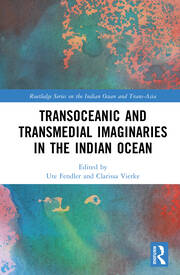Swahili library worlds: unpacking the Indian Ocean intellectual history of three Twentieth-Century “Living Archives” in East Africa

Counter to the idea of “restricted literacies” on the African continent, a thirst for knowledge has stimulated the making of local libraries and archives in various parts of Africa. This paper offers three snapshots of twentieth-century living libraries in Kenya and the multiple Indian Ocean forms associated with them. The aim is to show the Swahili Muslim Indian Ocean worlds emanating from so-called maktaba (libraries) or duka la vitabu (book- or printshops): how do Swahili library owners, as well as the forms (handwritten manuscripts, books, and other ephemera) and materialities that they collect and the multilingual locals they emerge from, act as coproducers of simultaneously regional-and-transoceanic Indian Ocean histories? By seeking to answer this question, the overarching objective of this research is to shed light on endangered archives and bypass simplistic notions of a monolithic African Islam by looking at texts and objects, their materiality and people as coagents of a transregionally grounded intellectual history.
This publication is part of the Veni 2021 project “Forging Transoceanic Muslim Histories: Swahili Literary Networks on the 20th-Century Indian Ocean Coast” (VI.Veni.211C.027), funded by the Dutch Research Council (NWO) Talent Programme. The chapter also includes data from the ongoing Ustadh Mau Digital Archive digitization project.
The full chapter will be published in Transoceanic and Transmedial Imaginaries in the Indian Ocean and available for pre-order in September 2025.
Transoceanic and Transmedial Imaginaries in the Indian Ocean explores multiple aesthetic relations constantly in flux, which construct, deconstruct, and reconstruct the Indian Ocean. It addresses the questions of how the arts – music, literature, visual art, and performance – relate to and dynamically create imaginaries of the Indian Ocean as a transcontinental space.
Author(s) / editor(s)
About the author(s) / editor(s)
 Annachiara Raia is an Africanist specialised in Swahili Muslim intellectual traditions with a background in the languages, history and cultures of the Islamic countries. She has studied Classical Arabic, Swahili and Somali languages and literature at the University of Naples ‘L’Orientale’ (Italy). She holds a PhD (2018 cum laude) in Literatures in African Languages and Asian, African and Mediterranean Studies, in cotutelle between the University of Naples ‘L’Orientale’ and the Bayreuth International Graduate School of African Studies at Bayreuth University (Germany).
Annachiara Raia is an Africanist specialised in Swahili Muslim intellectual traditions with a background in the languages, history and cultures of the Islamic countries. She has studied Classical Arabic, Swahili and Somali languages and literature at the University of Naples ‘L’Orientale’ (Italy). She holds a PhD (2018 cum laude) in Literatures in African Languages and Asian, African and Mediterranean Studies, in cotutelle between the University of Naples ‘L’Orientale’ and the Bayreuth International Graduate School of African Studies at Bayreuth University (Germany).
Her academic activities include not only teaching and conceptualising courses on African literature, postcolonial theories, oral traditions, Swahili libraries and heritage for the African Studies programmes, but also extensive archival and ethnographic research in East Africa with, artists, thinkers, librarians and family-run bookshops located in Kenya and Tanzania.
Annachiara is co-convenor of the CRG African-language archives - Unpacking local epistemologies at the ASCL and principal investigator for two ongoing research projects: The cultural preservation of the Ustadh Mau Digital Archive (UMADA) project and the NWO Talent Programme Veni SSH 2021 research on Portable Islam: Swahili Literary Networks in the 20th century Indian Ocean.

